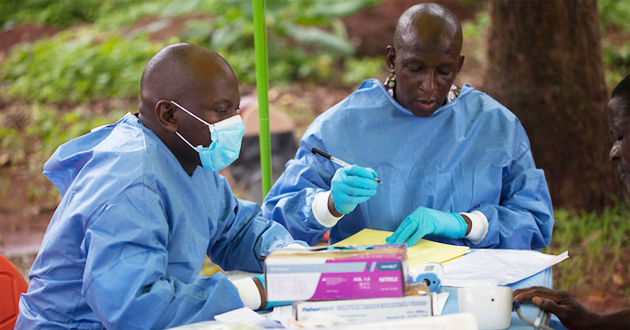Uganda steps up Ebola preparedness after recent DRC outbreak

Uganda has stepped up its Ebola preparedness and prevention strategy in response to a recent outbreak in the neighbouring Democratic Republic of Congo (DRC). Along the DRC-Uganda border surveillance and alertness have been increased.
At a high-level breakfast meeting in Kampala, Diplomatic Corps, Health Development Partners and media were informed of the heightened response.
The response is currently active in the high risk districts bordering DRC such as Bundibugyo, Bunyangabu, Hoima, Kabarole, Kasese, Ntorok. The cities of Kampala and Entebbe are also on high alert.
The recent Ebola outbreak in DRC was declared on the 1st August after cases were identified in the North Kivu Province, bordering Rwanda and Uganda.
Uganda has deployed response teams which are focusing on community engagement, sample collection, surveillance, border screening, case management and psycho-social support experts.
The World Health Organisation is working with the Government of Uganda to build the capacity of 589 health workers trained in case management, 32 health educators trained in Risk Communication and 55 Rapid Response teams.
WHO has also provided logistical support including the deployment of Ebola Kits, infrared thermometers, Infection Prevention equipment, Information and Education material in high risk areas. Two Ebola treatment units have also been deployed.
There are currently no known cases of Ebola in Uganda. However, the Minister of Health Dr Jane Ruth Aceng, commented:
“Ebola is real and we cannot downplay the importance of readiness. Global Health Security is important, a threat anywhere is a threat everywhere.”
WHO have warned that despite Uganda’s preparation efforts there are still challenges that put Uganda at a high risk.
The AIDF Africa Summit will return to Nairobi in February 2018.
If you’d like to stay informed on the latest updates in aid and development, please sign up for the AIDF newsletter.
Image credit: WHO















